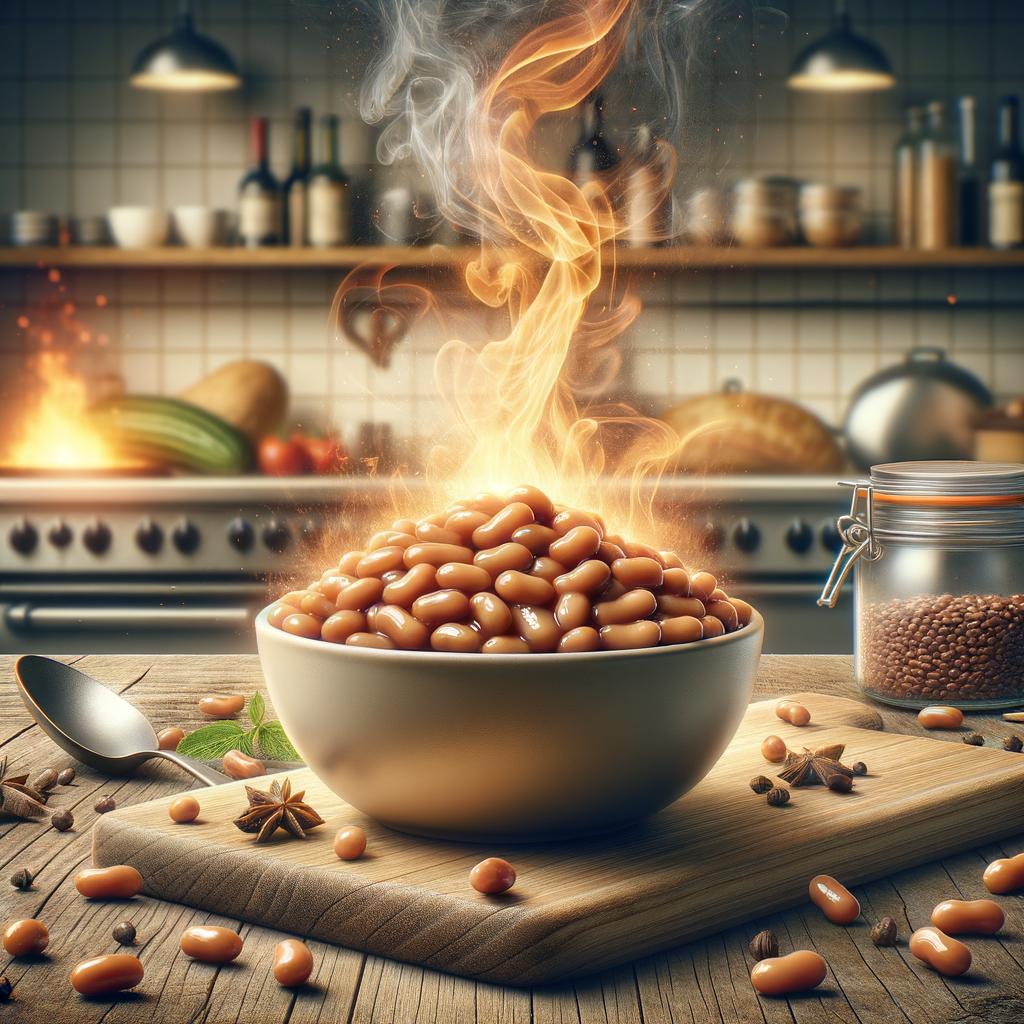Baked Beans

Description
Baked beans, a humble yet hearty ingredient, are small, creamy white beans, often navy or haricot, bathed in a rich, sweet, and tangy sauce. These tiny legumes have a soft, smooth texture that melts in your mouth, while their sauce is thick and deeply flavored, often with undertones of molasses, brown sugar, and a hint of smoky bacon or pork. What sets baked beans apart from other legume-based dishes is their unique preparation method – slow-cooked and often baked to perfection, allowing flavors to develop and intensify over time.
Primary Uses
Baked beans are a versatile ingredient, used in a myriad of dishes across different cuisines. They are a classic staple in a full English breakfast, served alongside eggs, sausages, and toast. In American cuisine, they are often enjoyed as a side dish at barbecues, picnics, and family gatherings, or as a comforting main dish with a slice of cornbread. Baked beans also find their way into casseroles, stews, and even on top of baked potatoes. Beyond culinary uses, baked beans hold cultural significance, particularly in New England, where they were traditionally cooked on Saturdays and left in the oven overnight to be enjoyed after church on Sundays.
History
The history of baked beans is a tale as old as time, dating back to Native American tribes who mixed beans with maple syrup and bear fat, then slow-cooked them in pits. The recipe was later adapted by the colonists, replacing maple syrup with molasses and bear fat with pork. This dish became a New England staple and eventually spread across the United States. Over time, the recipe evolved, with each region adding its unique touch. In the UK, baked beans were popularized in the 19th century by Fortnum & Mason as a luxury item, but it wasn't until the mid-20th century that they became a common household staple, thanks to the advent of canned goods.
Nutritional Information
Baked beans are a nutritional powerhouse, packed with protein, fiber, and complex carbohydrates. They are a good source of several essential minerals such as iron, magnesium, and zinc. Their high fiber content aids in digestion and promotes a feeling of fullness, while the protein supports muscle growth and repair. However, it's worth noting that commercially prepared baked beans can be high in sugar and sodium. When compared to other legumes, baked beans hold their own, offering a similar nutritional profile but with the added depth of flavor from their signature sauce. Despite their humble origins, baked beans continue to be a nutritious and comforting dish loved by many.

